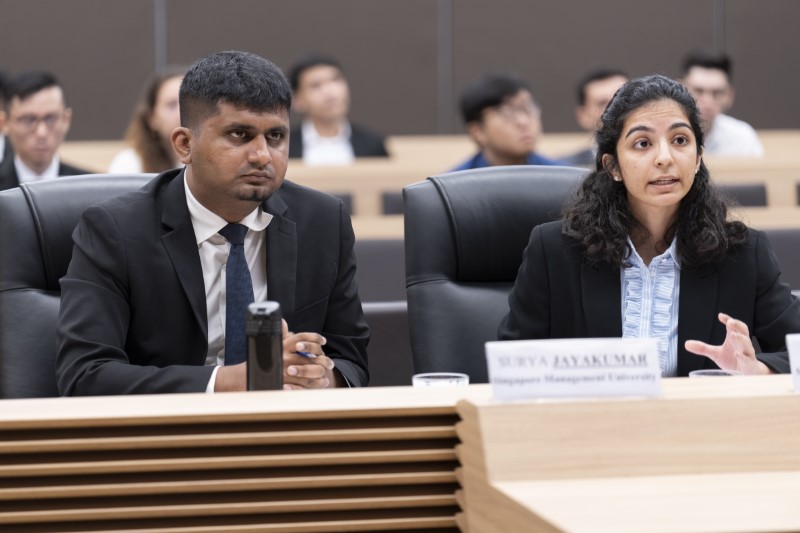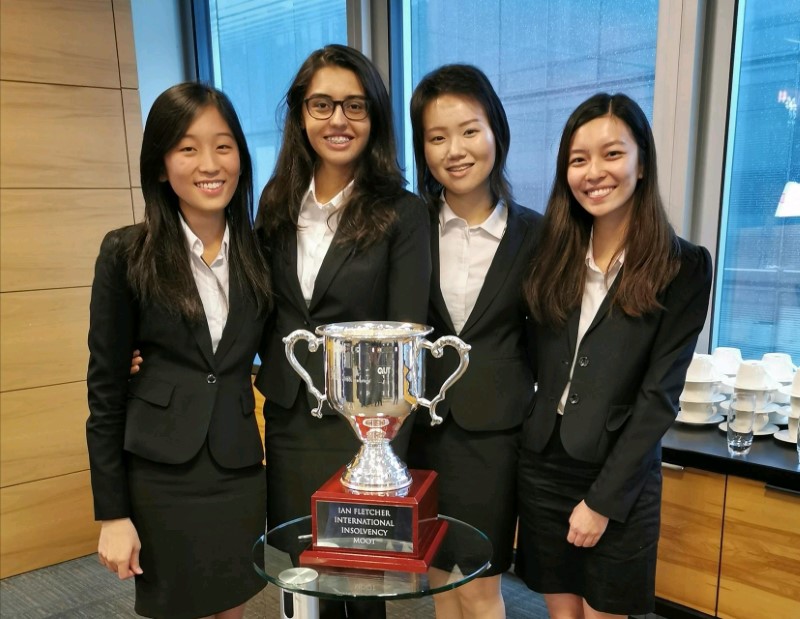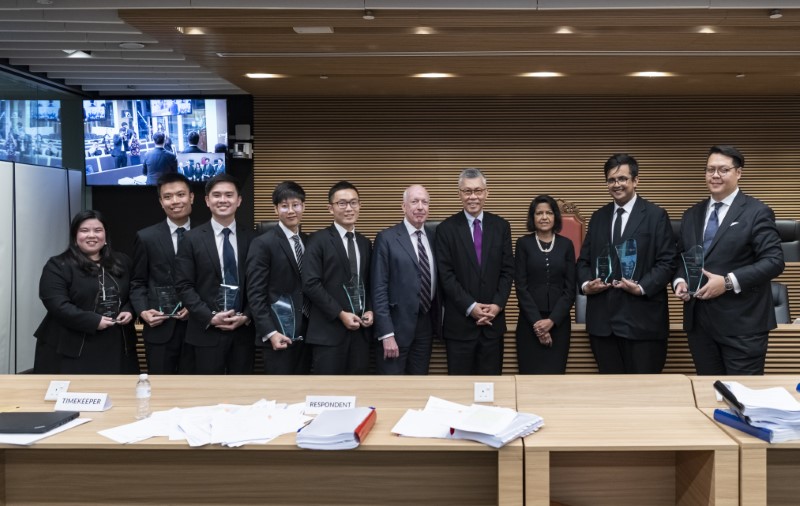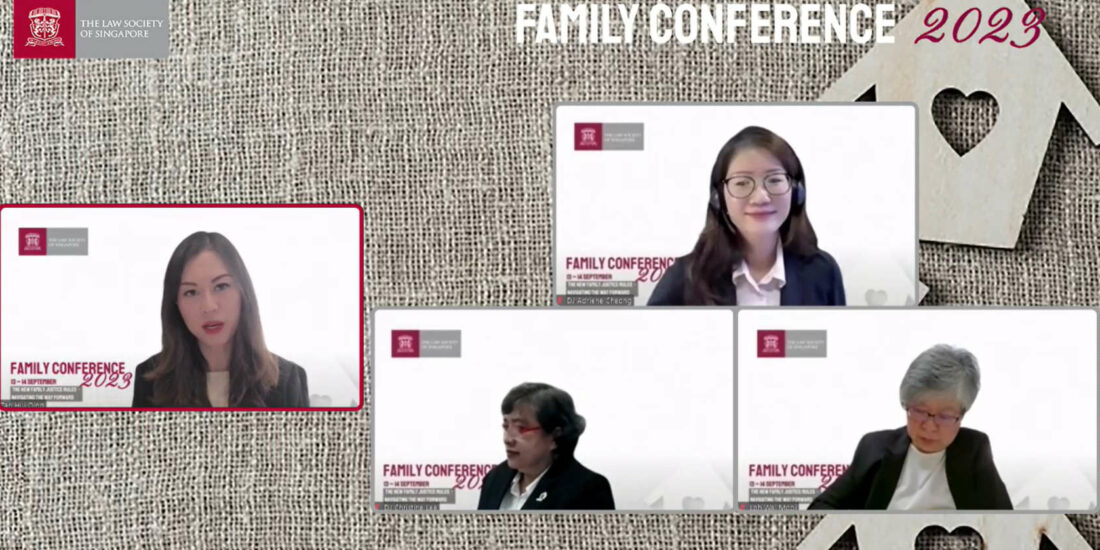
COVID-19 and the 2019/20 International Moots Season
Recap of the Season
This is the sixth1The previous reports were “Some thoughts on a record-breaking 2014/15 season for Singapore’s international mooters”, Law Gazette, August 2015; “More thoughts on another record-breaking season for Singapore’s international mooters”, Law Gazette, June 2016; “Another season of record-breaking international moot court achievements for Singapore Management University”, Law Gazette, November 2017; “The 2017/18 international moots season in review”, Law Gazette, October 2018; “A recap of the 2018/19 international moots season”, Law Gazette, September 2019. annual review of Singapore’s performance in notable international moot competitions.2Regional competitions with hitherto uncompleted international follow-ups (eg, Lachs, for which NUS was the Asia-Pacific finalist this year), competitions which have an over-concentration of multiple teams from the same institution (eg, SEL), role-play competitions (eg, JP, for which NUS won its 2nd title this year), and mediation or negotiation competitions are excluded from this recap. This season3Defined to mirror the most common academic year, ie end-August 2018 to end-July 2019 for 2018/19. will of course be known as a highly disrupted one, beginning with the Hong Kong unrest that barred some teams from participating in LAWASIA (for which Singapore has been to the last four championship finals) and COVID-19 that led to the outright cancellation of various Grand Slam4Grand Slams or Majors are class-leading competitions that attract a substantial number of teams. They currently comprise the Jessup, Vis, Vis East, Price, International Criminal Court, Frankfurt, and Lachs moots. moots including the Jessup, International Criminal Court, and Frankfurt (for which Singapore has regularly featured in the championship finals).5The International Criminal Court Moot, while not offering an official online alternative, allowed universities to organise their own friendlies. In a friendly tournament for the Asia-Pacific region that attracted 14 teams and 4 former championship finalists, NUS and SMU had the joint highest average scores, while SMU secured the most wins. SMU, with 3 championships, continues to hold the tournament record. For the Jessup, discussions were underway to accommodate teams that were affected by the pandemic, but the tournament was ultimately cancelled, with only memorial prizes awarded. Smaller niche moots, such as the International Maritime Law Arbitration and Private Law competitions, were also not spared and either cancelled entirely or only awarded memorial prizes. There were moot organisers, however, who were prepared to do the unprecedented and offer mooters the alternative of competing online using video-conferencing technology. Students participating in the two Vis competitions, for instance, still had the opportunity to apply their skills and knowledge even though air travel was no longer an option. Then there were competitions that, instead of using oral scores to determine the champion as is traditionally done, relied solely on memorial scores. Finally, there were competitions that managed to take place before the full raft of travel restrictions hit, such as the Fletcher and FDI competitions. It is in this context that we are happy to report that Singapore still managed to achieve 15 podium finishes during this unique season for international moots:
| Moot Edition | Venue | Teams | Singapore Results/Rank |
|---|---|---|---|
| 12th Foreign Direct Investment Arbitration | Seoul and Miami | ~ 120 | SMU: Champions (Asia Pacific), 2nd-runners-up (International)
NUS: 6th (Asia Pacific), NA (International) |
| 21st Asia Cup | Tokyo | ~ 25 | NUS: 7th
SMU: NA |
| 2nd Advocate Maximus | New Delhi | ~ 40 | SMU: 2nd-runners-up
NUS: Prelims |
| 13th Price Media Law | Beijing and Oxford | ~ 120 | SMU: Champions (Asia Pacific); Champions (International)
NUS: 4th (Asia Pacific); Prelims (International) |
| 4th Fletcher International Insolvency | London | ~ 30 | SMU: Champions
NUS: NA |
| 18th Intellectual Property | Oxford | ~ 60 | SMU: qualified; orals postponed
NUS: qualified; orals postponed |
| 4th CIArb Australia Vis Prelim | Melbourne | ~ 15 | SMU: Champions
NUS: DNP |
| 17th Vis East Commercial Arbitration | Hong Kong (online) | ~ 150 | SMU: 2nd-runners-up
NUS: NA |
| 27th Vis Commercial Arbitration | Vienna (online) | ~ 400 | SMU: 16th-finalist
NUS: Prelims |
| 11th Sarin Air Law | St Petersburg (written only) | ~ 60 | SMU: Champions
NUS: 7th |
| 61st Jessup International Law | Washington DC (written only) | ~ 120 out of 550 | SMU: NA
NUS: 25th |
| 13th Trilegal Commercial Arbitration | Bengaluru (online) | ~ 40 | SMU: 12th
NUS: DNP |
| 3rd PAX Private International Law | Paris (online) | ~ 20 | SMU: 1st-runners-up
NUS: DNP |
| 13th International Criminal Court | Hague (regional friendly) | ~15 out of 100 | SMU: Most wins and highest average
NUS: Highest average |
| 6th HSF Competition Law | London | ~ 40 | SMU: NA
NUS: 1st-runners-up |
| 6th Nuremberg International Criminal Law | Nuremberg (written only) | ~ 60 | SMU: Honourable Mention
NUS: Honourable Mention |
| 21st International Maritime Arbitration | Singapore (written only) | ~ 50 | SMU: 1st-runner-up
NUS: Ranking unknown |
| 18th Red Cross International Humanitarian Law Moot | Hong Kong (written only) | ~ 100 | SMU: Honourable Mention
NUS: DNP |
Comparing the Present and the Past
The season got off to a promising start when SMU won the Asia-Pacific regional championships for both the FDI (Seoul) and Price (Beijing) competitions. This was the first time SMU was participating in the FDI moot, and the first time SMU was required to participate in a regional qualification for the Price. Singapore has a strong tradition in investment arbitration competitions, with NUS and SMU having reached the Frankfurt championship final four times between them. Singapore also has a strong tradition in the Price competition; SMU extended its tournament record to four championships when it won the international final against Oxford as well as Best Finals Oralist. Another competition that SMU extended its tournament record was Fletcher, when it took home championship #2 after winning the final in London against India.
Not long after, the full force of COVID-19 hit, and many moots were thrown into uncertainty. One moot that did press on was the Vis East, which, as mentioned, conducted the hearings online. While SMU was not able to secure the tournament record by winning championship #2, it came close, adapting quickly to the online format and coming in 2nd-runners-up, its 5th podium finish in the past six years. SMU also won the Best Oralist title, Singapore’s 3rd over the years. The Vienna edition also went online, and SMU matched the tournament record it had set in 2012 by winning six Honourable Mentions, and also set a combined Vis-Vis East tournament record of 11 Honourable Mentions. Another tournament that Singapore teams have regularly featured in is the Sarin Air Law Moot. While the oral rounds have been postponed indefinitely, SMU was adjudged to have produced the best written submissions. Other notable achievements this season include SMU reaching the championship final of the PAX Moot on conflicts of laws on its debut, and NUS reaching yet another championship final in the HSF Moot on competition law.
Across all competitions this season, SMU took home 17 Best Oralist and 12 Best Memorial titles out of the combined 37 won by Singapore. In perspective, the world records for the greatest number of international moot final appearances in a single season (9, achieved in 2015/16 by SMU) and the greatest number of international moot championships in a single season (5, achieved in 2014/15 as well as 2016/17 by SMU) remain intact.6However, this is partly because the pandemic has rendered precise calculations difficult – for instance, on paper, SMU won 7 championships out of 9 finals this season, but only 4 were from an unmodified version of their competition. Before this season, both law schools had placed in the Top-3 of Grand Slam moots 29 times between them since SMU launched its International Moots Programme in 2010/11, with SMU placing 25 out of those 29 times (including multiple trips to the Jessup, Vis, Vis East, Frankfurt, Price, and International Criminal Court finals) and winning 8 Grand Slam championships. Following this season, the total between both schools is now 31, with SMU taking 27 of those spots and also adding a Grand Slam title – bearing in mind again that three Grand Slams were cancelled this year. Across all international competitions, SMU has now won 30 championships in 84 podium finishes since its moot programme’s founding.
All things considered, this has been a bittersweet international moots season for Singapore. Just when it looked like it had a very good chance to reverse the trend of decreasing Grand Slam podium finishes, COVID-19 hit. Given how things have developed, it is also uncertain if the next international moots season will continue to be affected. Trust the Singapore-DNA, however, to be more than ready for all eventualities – as it did this season.

The SMU Price team won its 4th championship, prevailing in the final against Oxford

The SMU combined Vis team set a tournament record of 11 Honourable Mentions

SMU became the first university to win the Fletcher Insolvency moot twice, defeating India in the final held in London

Alumni of SMU’s International Moots Programme do well in moots even after graduation, for instance winning the 2020 Essex-SAL competition for young lawyers
Endnotes
| ↑1 | The previous reports were “Some thoughts on a record-breaking 2014/15 season for Singapore’s international mooters”, Law Gazette, August 2015; “More thoughts on another record-breaking season for Singapore’s international mooters”, Law Gazette, June 2016; “Another season of record-breaking international moot court achievements for Singapore Management University”, Law Gazette, November 2017; “The 2017/18 international moots season in review”, Law Gazette, October 2018; “A recap of the 2018/19 international moots season”, Law Gazette, September 2019. |
|---|---|
| ↑2 | Regional competitions with hitherto uncompleted international follow-ups (eg, Lachs, for which NUS was the Asia-Pacific finalist this year), competitions which have an over-concentration of multiple teams from the same institution (eg, SEL), role-play competitions (eg, JP, for which NUS won its 2nd title this year), and mediation or negotiation competitions are excluded from this recap. |
| ↑3 | Defined to mirror the most common academic year, ie end-August 2018 to end-July 2019 for 2018/19. |
| ↑4 | Grand Slams or Majors are class-leading competitions that attract a substantial number of teams. They currently comprise the Jessup, Vis, Vis East, Price, International Criminal Court, Frankfurt, and Lachs moots. |
| ↑5 | The International Criminal Court Moot, while not offering an official online alternative, allowed universities to organise their own friendlies. In a friendly tournament for the Asia-Pacific region that attracted 14 teams and 4 former championship finalists, NUS and SMU had the joint highest average scores, while SMU secured the most wins. SMU, with 3 championships, continues to hold the tournament record. For the Jessup, discussions were underway to accommodate teams that were affected by the pandemic, but the tournament was ultimately cancelled, with only memorial prizes awarded. |
| ↑6 | However, this is partly because the pandemic has rendered precise calculations difficult – for instance, on paper, SMU won 7 championships out of 9 finals this season, but only 4 were from an unmodified version of their competition. |






